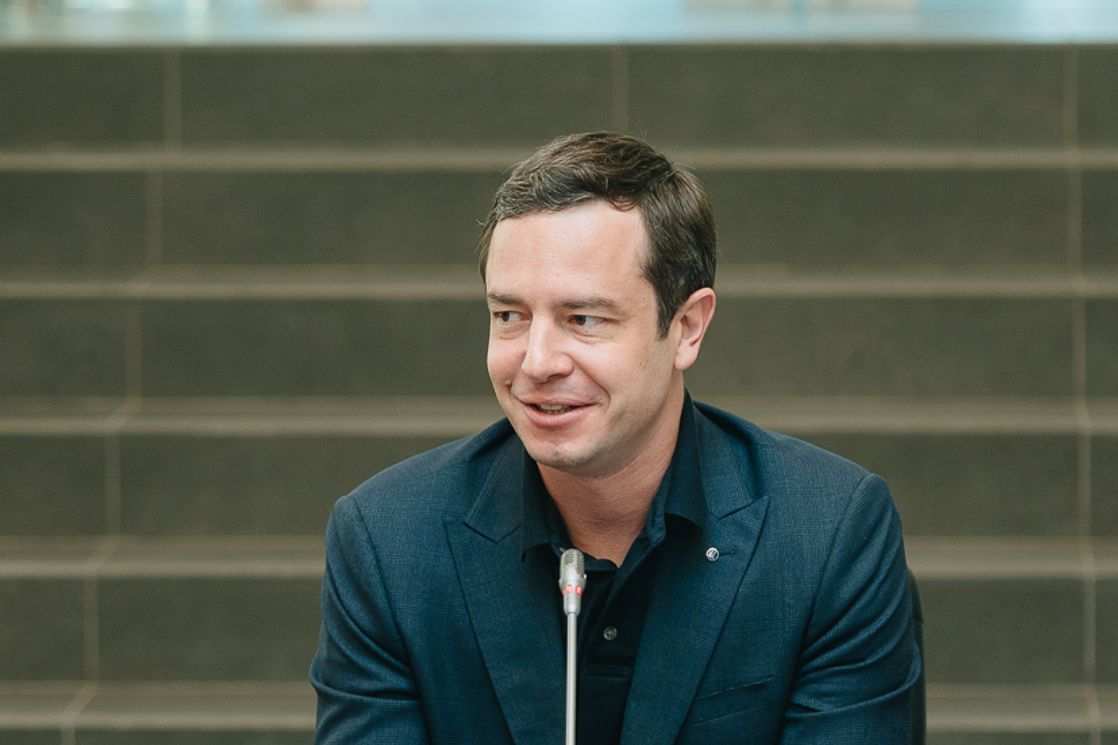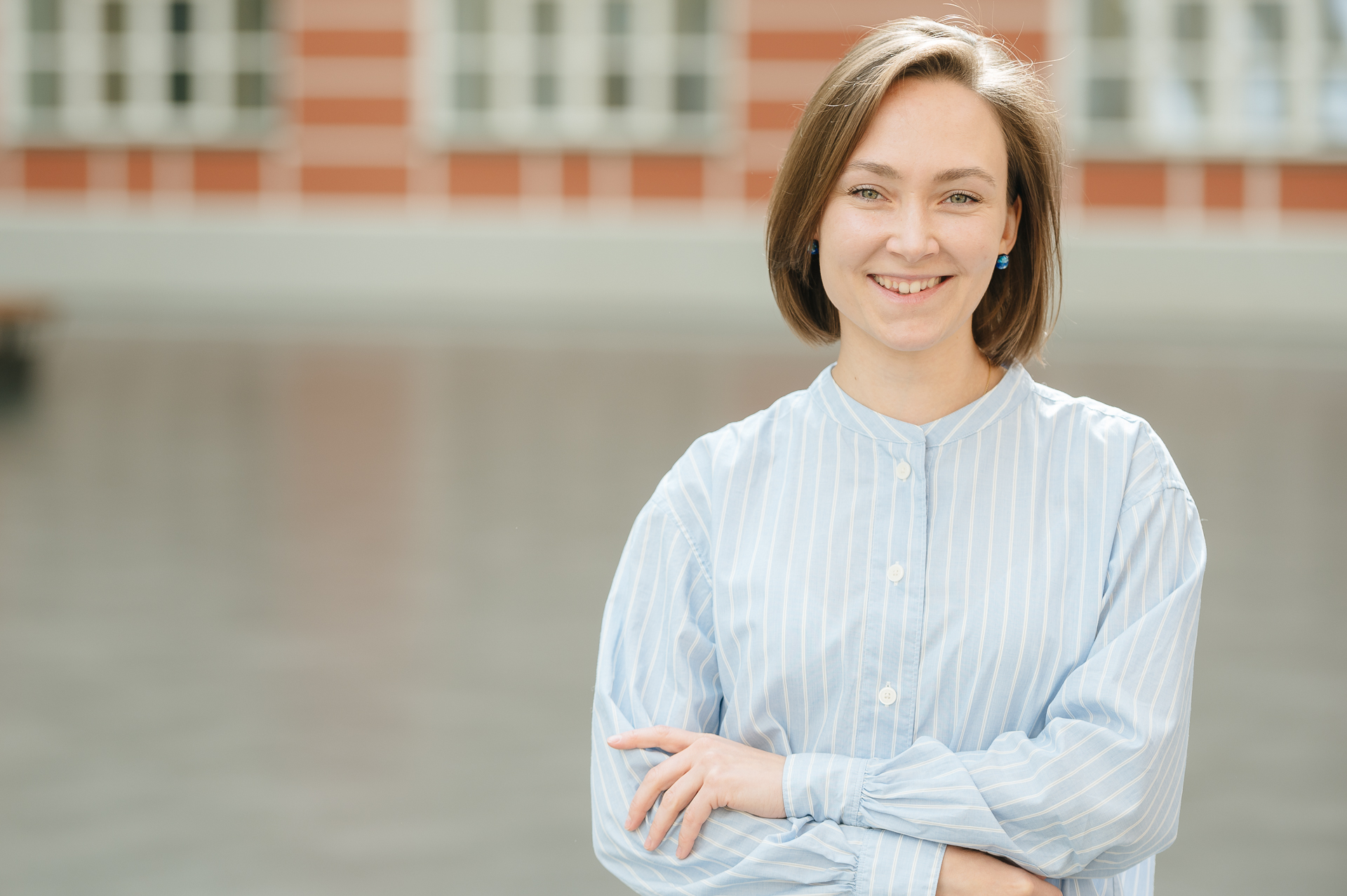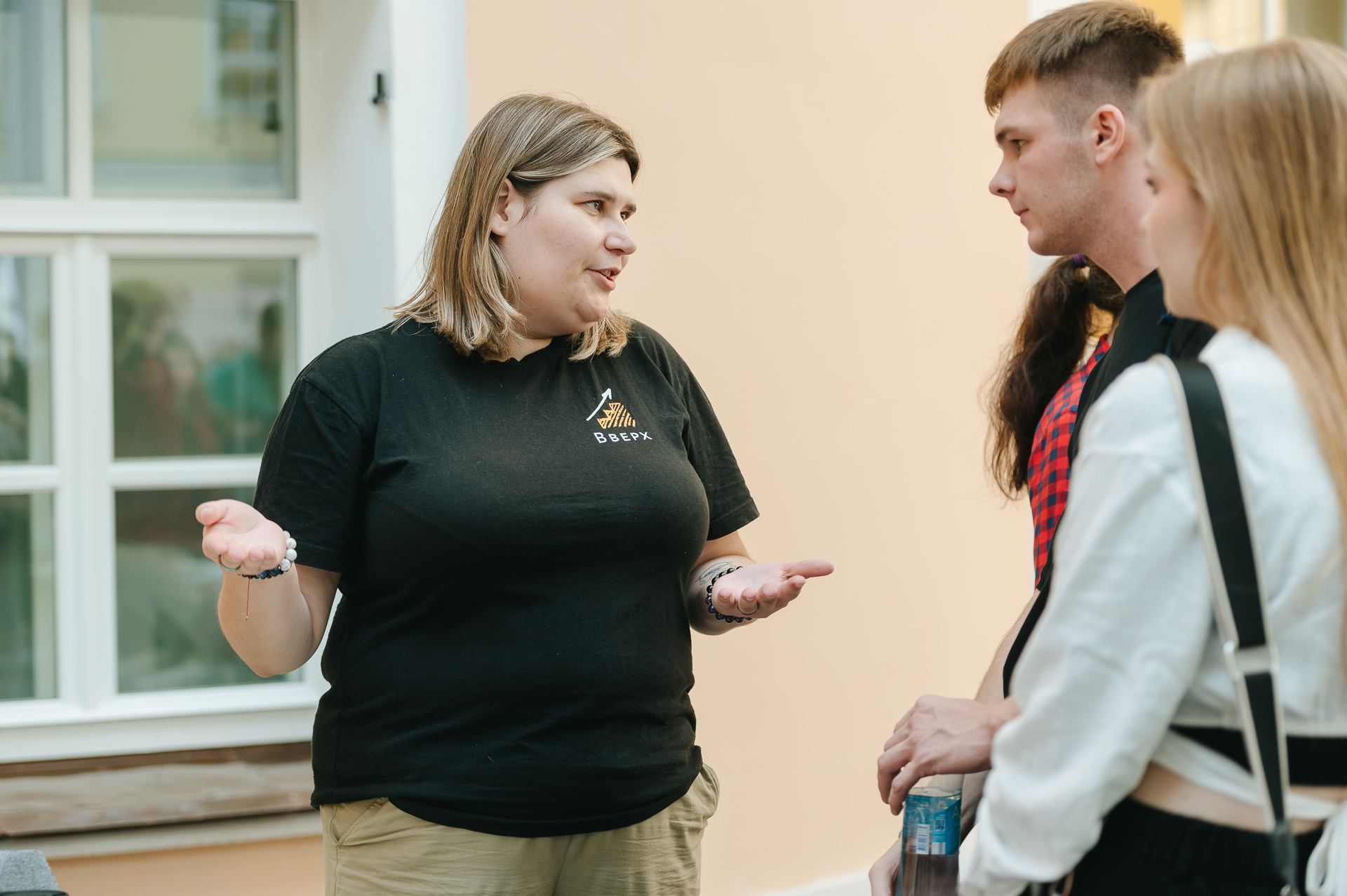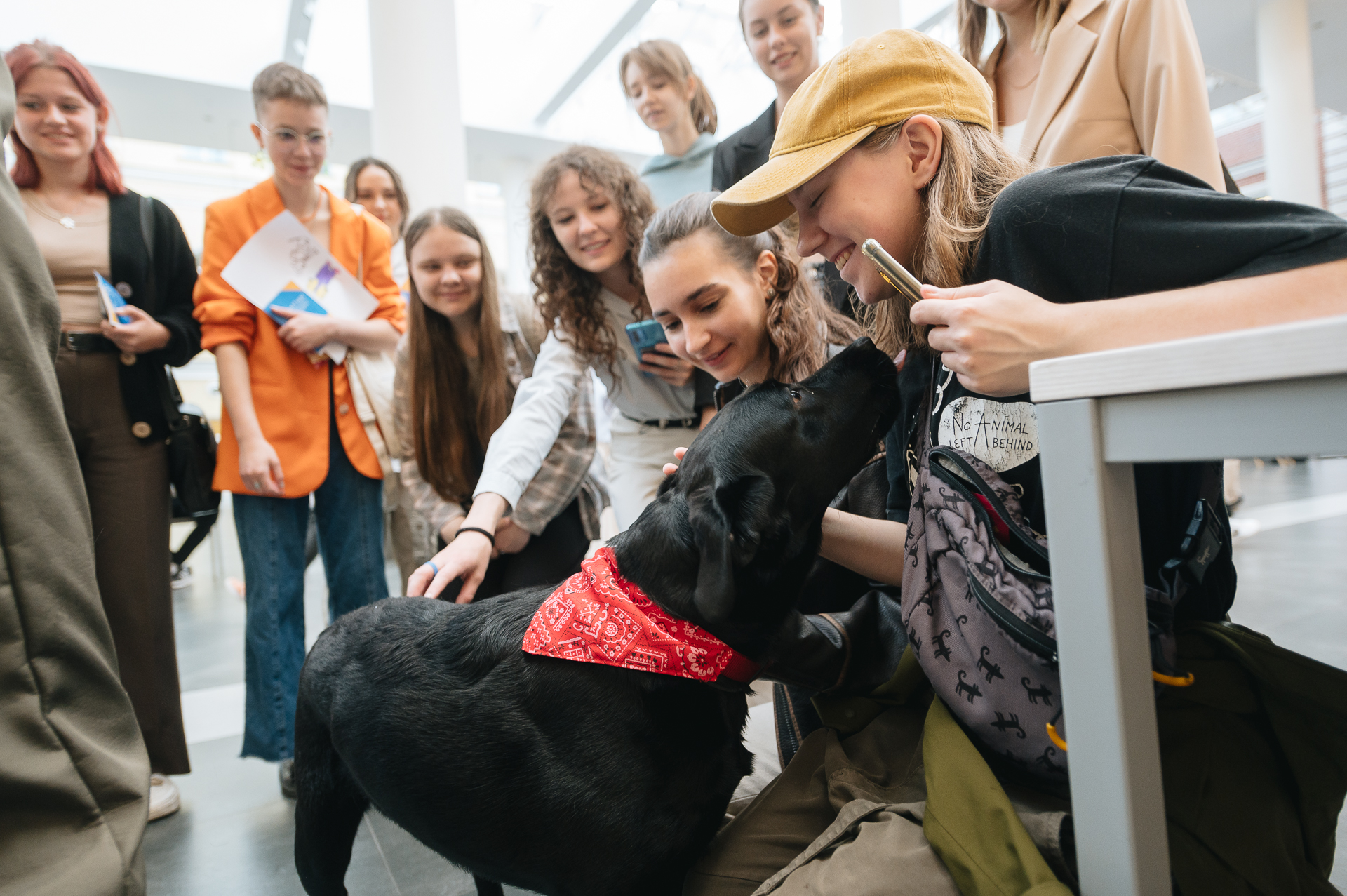Service Learning Programme Launched at Russia’s Universities
On September 5th, which is the International Day of Charity, the Service Learning programme was launched at many of the country’s universities. HSE University hosted a meeting with deputy deans and faculty project managers, followed by a large NGO fair, where both students and HSE University staff got to know more about partner NGOs and planned further joint projects.
Service Learning is an educational approach used throughout the world. Students learn academic disciplines while gaining work experience through projects with non-profit organisations and local communities. HSE University has a wealth of experience in interacting with NGOs, which is reflected in its disciplines, projects, Rediscovering Russia expeditions, term papers, and graduation theses. The Service Learning programme will systematise the university’s experience, expand its network of contacts and offer systemic interaction to those educational programmes and students that, for some reason, have not yet had this experience.

Dmitry Zemtsov, HSE University Vice Rector, is convinced that ‘HSE University accepts motivated and talented students who strive to change the world around them for the better.’ ‘It is important that the university gives them that opportunity,’ he says. ‘It is always better to change the world together with friends. In this sense, NGOs are potential friends of our students, with whom they can organise social projects. Today we discussed how this can be done through the traditional student project fair, and we agreed on how NGOs will learn to use this resource.’

Anfisa Dmitrieva, Director of HSE University’s Centre for Leadership and Volunteer Work, added that it is necessary to maintain the contact with NGOs that HSE University has long had. ‘If earlier we often talked about interaction within the framework of extracurricular activities—we held charity events and festivals—now, within the framework of the Service Learning programme, we also pay attention to systemic interaction at the educational process level, to more complex tasks, where students can prove themselves,’ said Anfisa Dmitrieva.

‘Thanks to the introduction of the Service Learning approach, students have the opportunity to try their hand at professional work while studying, and NGOs can complete the tasks that they do not always have enough time and resources for. Either way, it is a win-win strategy. For our organisation, students can help improve the programme evaluation system, assist in writing methodological programmes, conduct mini-courses on financial and legal literacy for students, develop psychological games, etc. There are quite a lot of tasks, let’s hope that we will be able to implement most of the ideas,’ emphasised Ruslana Yatsenko, Deputy Director and psychologist of the Step Up Orphan Opportunity Centre, one of the organisations taking part in the fair.
The Service Learning methodology has been actively tested over the past three years at Russian universities, including HSE University. Starting from the new academic year, 126 universities and one college have included some specific hours in the curriculum when students of various specialities will work on community projects. The programme also suggests the possibility of including this in term papers and graduation theses.

The events at HSE University began with a meeting between deputy deans and project managers of the faculties that will develop Service Learning projects within the educational programmes. At the meeting, teachers and staff talked about how exactly the educational methodology could be integrated into the educational process, as well as what projects can be implemented by students of each educational programme. Then, a special fair was organised in the central atrium of the HSE University building on Pokrovsky Bulvar to help HSE University staff and students learn more about existing NGOs and HSE University’s student organisations that work for the benefit of society. Here, participants talked with partners and outlined cooperation in those areas that interest them—from helping people and animals to ecology. Special excitement within the walls of HSE University was stirred by the appearance of a guide dog whom everyone wanted to hug and pet.

Ulyana Gladkova, Psychology Programme, first year
I have always been involved in social projects, and I have always wanted to do this, so today I was excited to find out what projects HSE University can offer. At school, we had a small volunteer group, we used to collect various stationery and household goods for children from children’s homes and rehabilitation centres. We also arranged special evenings for them and distributed these items. I think such events are important, because the modern world needs kind people, and for many, such help is very significant. It is great that HSE University systematises such activities and is moving from ad-hoc volunteering to a whole methodology.

Nikita Karankevich, Political Science Programme, second year
NGOs and strategic volunteering are relevant to me, and it was important for me to come and talk to interesting people. I am currently a regular blood donor, and previously took part as a volunteer in a charitable foundation—I went to a music festival where I told people about the foundation and had interactive sessions with guests. This topic is always important, the world that we live in is not ideal, there are many problems and people who need help. We must help in any way we can, not necessarily financially, one can also get engaged in social projects, or raise awareness.

Artemiy Rybakov, Media Communications Programme, first year
Such events are important for the development of NGOs—this way they can inform people about their work and engage with them. You need to participate in such projects whenever possible, and I think I would like to try something similar in the future.

Polina Isaeva, Economics Programme, third year
I came under the six-month mobility programme from HSE University in Perm. I have not participated in any social projects before, but in the future, I would like to try. This is an individual choice, but such activities need to be encouraged, it is both very important and extremely rewarding. It is great that events like this take place at HSE University, as it is absolutely the right thing to do, I support this and hope that there will be more.
Starting from September 5, the programme will be launched at universities across the country. This will make it possible to engage a wide target audience in the topic of Service Learning and to acquaint people with the specifics of the existing university work formats with social customers, as well as to unite the emerging community of the Service Learning programme in the regions and at the federal level. In addition, the Association of Volunteer Centres continues to accept applications from potential social partners of pilot universities on the website.
